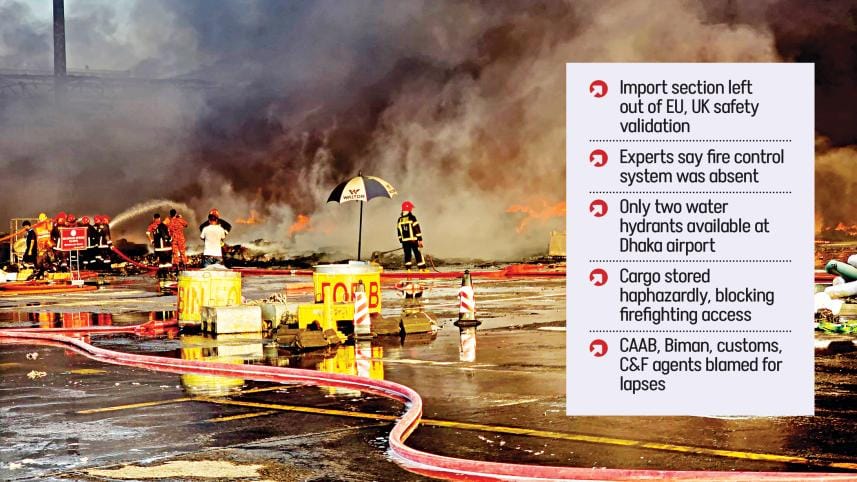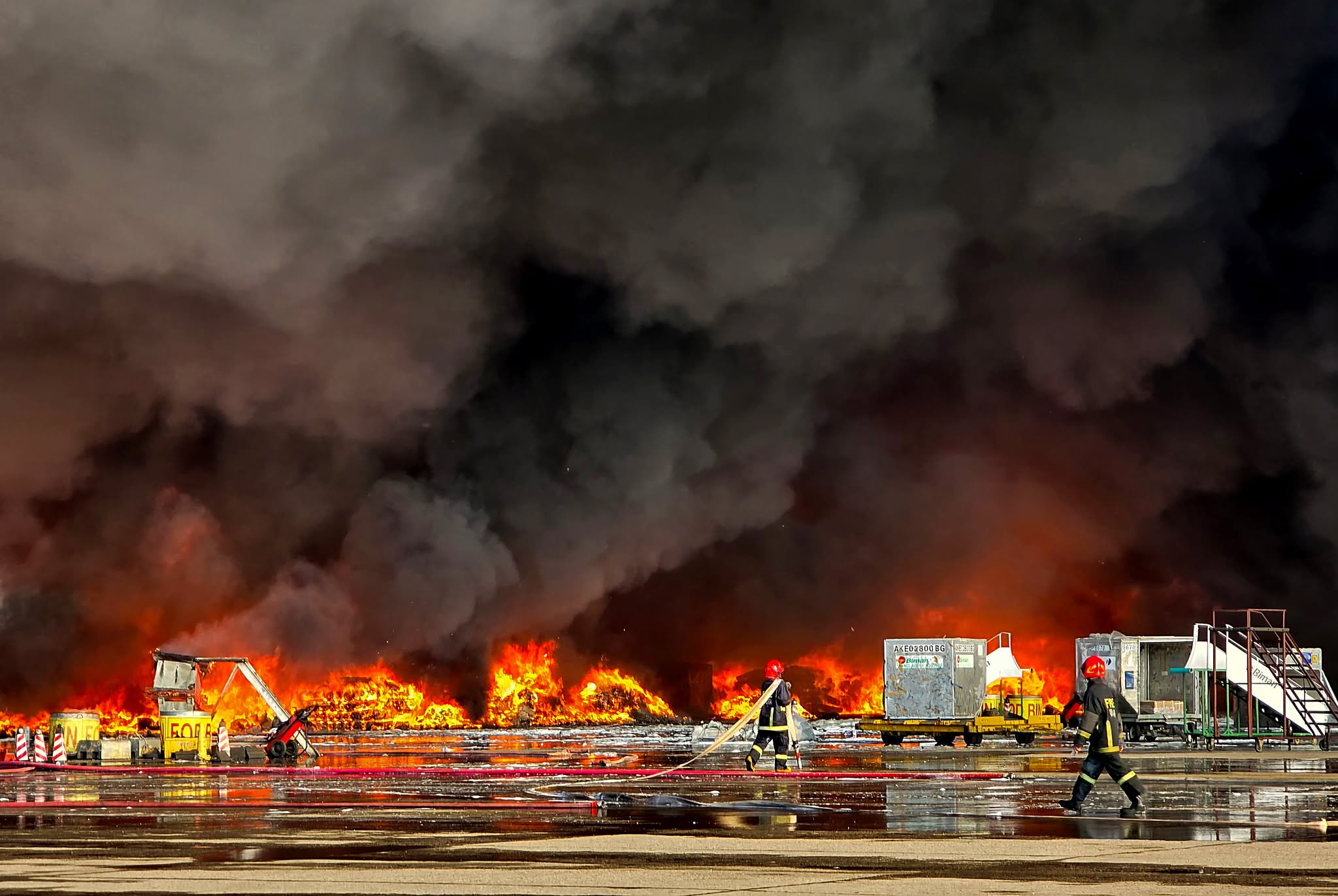Dhaka airport fire: Safety standards flouted at import section

The import section of the cargo complex at Hazrat Shahjalal International Airport (HSIA), which was devastated by Saturday's fire, was not in compliance with internationally recognised safety standards, experts said.
Although safety protocols were followed in areas such as the export section of the cargo complex under EU and UK (ACC3 and RA3) validation, the import section was left out.
Users have repeatedly complained that import cargoes were often left carelessly outside designated sheds, and several theft incidents occurred in this key area.
The blaze destroyed valuables worth $1 billion, according to initial estimates. The government has launched a probe to determine the cause of the fire.
As per EU/UK ACC3/RA3 requirements, airlines carrying cargo from a third country (outside the EU or UK) must have ACC3 validation, while handlers providing cargo services to ACC3 airlines must have RA3 validation.
Biman Bangladesh Airlines holds both ACC3 (as an airline) and RA3 (as a cargo handler) certifications. ACC3 requires airlines to meet EU security standards through verified cargo handling and screening, while RA3 allows ground handlers to manage cargo bound for the EU.
A member of Biman's investigation committee, requesting anonymity, compared the import cargo section to a slum, saying it was in total disarray. "There was no fire control mechanism in line with International Civil Aviation Organisation (ICAO) standards," he said.
He added that the courier shed was in particularly poor condition, with no fire safety plan from the Civil Aviation Authority of Bangladesh (CAAB).
The probe member also highlighted that there are only two water hydrants at Dhaka airport for firefighting, raising questions about CAAB's seriousness in safety management.
A major freight forwarder, requesting anonymity, said the fire occurred because safety and security measures at the cargo complex failed to meet internationally recognised standards for such a sensitive area.
Air Vice Marshal Md Mostafa Mahmood Siddiq, chairman of CAAB, however, declined to take direct blame for the blaze. While the building belongs to CAAB, operations are conducted by Biman, clearing and forwarding (C&F) agents, and customs authorities, he said at a media briefing on Tuesday.
He attributed much of the responsibility to these three parties, particularly Biman, which handles ground operations, but said it would be "premature" to assign direct blame before the investigation concludes. He also noted that firefighting trucks could not reach the fire source because large quantities of goods were piled in front of the import cargo warehouse.
Aviation experts, however, held CAAB responsible alongside Biman, C&F agents, and customs authorities for failing to discharge their duties. Biman handles ground operations, C&F agents manage cargo clearance, and customs authorities oversee cargo management. Although goods are supposed to be cleared within 21 days, insiders said items often remain for years.
The CAAB chief claimed that operations at the airport follow ICAO protocols, a set of practices ensuring the safety, security, and efficiency of international civil aviation.
Aviation expert ATM Nazrul said the import cargo section lacks standard practices, with goods stored haphazardly inside and outside the building, which made it difficult for firefighters to reach the blaze. He urged CAAB to adopt international standards in the import section.
In April 2016, the UK and EU banned direct flights from Dhaka due to safety concerns at HSIA. Bangladesh later regained approval after committing to improved scanning, screening, explosive detection, fire control, and overall incident management at the airport and cargo complex.
Boshra Islam, general manager of public relations at Biman, said almost all sections of HSIA follow ACC3 and RA3 standards, except the import section. The last ACC3 validation by the EU was conducted on March 3–5, 2024, and the last RA3 validation on May 15–17, 2023, both covering only the export cargo section. The ACC3 is valid until March 4, 2029, and RA3 until October 4, 2026. She confirmed that import cargo facilities are not included in these validation programmes.
Aviation expert Kazi Wahidul Alam said even if ACC3 and RA3 standards are not mandatory for the import section, the same level of compliance should be maintained because it is an equally important part of the airport. Since import cargo is often not released immediately -- sometimes taking up to two weeks -- strict safety and compliance measures are essential.
Referring to delays in cargo release, Alam said this makes the strict implementation of safety and compliance standards in the import section even more crucial.





 For all latest news, follow The Daily Star's Google News channel.
For all latest news, follow The Daily Star's Google News channel. 

Comments